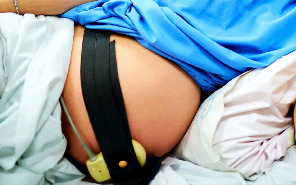

Oversight Causes Oxygen Starvation During Birth
The failure to recognise Baby D’s unusual heart rate in the period leading to his birth meant that he sadly experienced a period of oxygen starvation, resulting in a Cerebral Palsy diagnosis. Discover how we secured compensation to benefit Baby D’s long-term future.
- Home >
- Case Studies >
- Oversight Causes Oxygen Starvation During Birth
Background
Baby D’s mother was admitted to hospital in labour the day before a planned induction of labour. Prostin was given to help increase contractions, and CTG monitoring was carried out. Active pushing commenced at 04:00 and Baby D was born at 04:40.
On delivery, Baby D was flat and required intubation. At two days of age, he had seizures. He has since been diagnosed with Spastic Cerebral Palsy. An MRI has shown a pattern of brain damage consistent with a period of oxygen starvation around the time of birth.
This led to a birth injury claim, pursued on the basis that by 03:35 the CTG trace was significantly abnormal, which was not recognised. If it had been recognised, Baby D would have been delivered by 04:00 at the latest. Had he been delivered at any time before 04:25, it is probable he would have suffered no brain damage at all.
Settlement
The Defendant admitted both breach of duty and causation in the Letter of Response. Proceedings for a medical negligence claim were issued and judgment was entered for damages to be assessed. The claim was settled before a quantum trial for £3,750,000.
This case was led by Tony Mitty.
NOTE: While our case studies are designed to give an indication of the outcomes that can be achieved in these circumstances, the compensation awarded in individual cases can vary significantly due to a range of factors, including effects on life expectancy, the severity of the negligence that took place, and the financial impact.
Featured birth injury case studies
Featured birth injury insights






